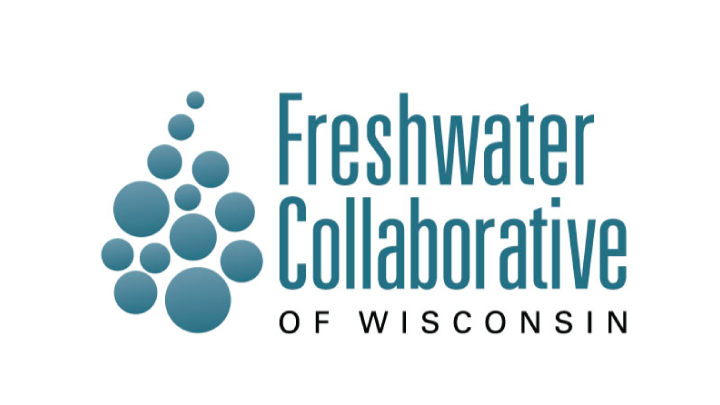Freshwater Collaborative of Wisconsin Commits $88,600 in Funding to Bolster Student Training and Workforce Development at UW-Parkside
Projects Will Help Address Statewide Water Challenges MILWAUKEE, Wis.- The Freshwater Collaborative of Wisconsin has committed to investing more than $4.2 million in funding for the current biennium (FY26 and FY27) to support water education and water research programs that will bolster Wisconsin’s water workforce for years to come.
MILWAUKEE, Wis.- The Freshwater Collaborative of Wisconsin has committed to investing more than $4.2 million in funding for the current biennium (FY26 and FY27) to support water education and water research programs that will bolster Wisconsin’s water workforce for years to come.
The 19 new projects involve faculty, staff, and students from all 13 Universities of Wisconsin as well as dozens of partners from industry, government, local communities, tribal nations, nonprofits, and K-12 education. They will increase research and training opportunities for high school, undergraduate, and graduate students and will address Wisconsin’s biggest water challenges. UW-Parkside will receive $88,600 this biennium for three different projects.
“The Freshwater Collaborative of Wisconsin shows the power of our universities when we come together to address Wisconsin’s needs,” said Universities of Wisconsin President Jay Rothman. “By expanding water-related degree programs and providing students with professional training opportunities, our universities are preparing future leaders while also strengthening Wisconsin’s economy, protecting our natural resources, and serving communities and industries throughout our state.”
UW-Parkside will receive $24,080 in Biennial Funding for the project titled “Engaging Undergraduate Students in Cutting-Edge Research on the Use of Earth Materials for the Removal of Contaminants, including Per- and Polyfluorinated Substances (PFAS).” This collaborative project with UW-Milwaukee will be led by Shangping Xu of UW-Milwaukee and UW-Parkside’s Associate Professor and Chemistry Department Chair, Lori Allen.
Polyfluoroalkyl substances (PFAS) are forever chemicals that stay in water and the environment permanently. In the previous project, researchers focused on legacy PFAS. This project will allow faculty researchers to work with and train undergraduate students to study the presence of these chemicals in Wisconsin’s surface water and groundwater and to quantify the removal efficiency of them through adsorption and/or filtration.
The Root River Explorers Program, under the guidance of UW-Parkside Lecturer and Environmental Education Manager Laura Schulz, will receive $5,418. The Root River Environmental Education Community Center (REC) opened in 2008 with a mission to provide community members with opportunities to explore the Great Lakes and to connect ecosystems through recreation, education, demonstration, and research. The REC is a partnership between UW-Parkside and the City of Racine. Funding from the Freshwater Collaborative will support UW student workers for two main initiatives at the REC.
The Root River Explorers Program provides 3-hour fieldtrips for underserved youth groups. Six environmental education workshops will be offered in summer 2026 and four in early summer 2027. The REC will also provide weekend rental operations during the 2026 summer season.
The “BenthicNet: Aquatic Invertebrate Reference Specimen Collaborative for Regulatory and Community Science” project is a collaboration between UW-Parkside, UW-Madison, and UW-Stevens Point. UW-Parkside will receive $59,102 in biennial funding for the project, led by UW-Parkside’s Associate Professor of Biology and Director of the Center for Environmental Studies Jessica Orlofske, Craig Brabant of UW-Madison, and Jeffrey Dimick of UW-Stevens Point.
Insects and other invertebrates are the most abundant and varied residents of freshwater habitats. Their presence and abundance are used as powerful tools to assess water quality, a practice called biomonitoring. Biomonitoring was developed in Wisconsin and has now spread globally. The legacy of those experts includes the techniques as well as the specimens they preserved in museum collections. Access to these irreplaceable materials and their data are necessary for future innovation. BenthicNet forms a network of specialists across Wisconsin that will expand access to these historically significant specimens while simultaneously training the next generation of experts. BenthicNet also creates opportunities to directly support statewide monitoring objectives of regulators and their partners.
“The Freshwater Collaborative has helped campuses develop innovative statewide courses, programs and research collaborations over the past five years,” said Marissa Jablonski, executive director for the Freshwater Collaborative of Wisconsin. “With this latest round of funding, we are committing to ongoing investment in those programs that will best recruit and train the next generation of water professionals to address the needs of Wisconsin.”
The funding is part of a statewide initiative, backed by the Wisconsin State Legislature and Gov. Tony Evers, to tackle Wisconsin’s grand water challenges and support recruitment, hands-on curriculum, undergraduate research opportunities, career development, and field training experiences for students interested in water-related careers. Grant descriptions for the latest funded projects are available at freshwater.wisconsin.edu/freshwater-collaborative-funded-projects-2025.
About the Freshwater Collaborative
The Freshwater Collaborative of Wisconsin is a partnership of Wisconsin’s 13 public universities, connecting with industry partners, local communities, policymakers and advocacy groups. The Freshwater Collaborative of Wisconsin is training the next generation of water professionals to solve global water problems through academic programs, collaborative research and career development across the Universities of Wisconsin. Learn more at freshwater.wisconsin.edu.
For More Information:
Heidi Jeter
Freshwater Collaborative of Wisconsin
hjeter@uwm.edu, 414-251-7445